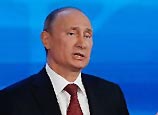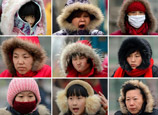
Earlier this month, Chinese mainland stock markets hit multi-year lows dropping sharply on concerns over the country’s economy, the global downturn, and the euro zone debt crisis. But investment flows haven’t trickled away just yet...a large portion of equity investors are now flooding into the fixed income sphere such as the bond market.
Chinese retail stock investors will remember 2012 as a year of doom and gloom.
In early December, Chinese Mainland equities dropped to a four-year low, with many fearing: the bottom has not yet been reached.
Martina Fuchs, Beijing, said,"This is why not only retail investors, but also equity investors and fund houses are turning to the RMB bond market to pursue capital preservation. This trend is likely to continue in 2013 as investors are avoiding high yield products and seek risk aversion instead."
China’s regulator kicked off several reforms this year, introduced instruments like bond funds and new wealth management products, and thanks to this, investors now have a wider selection of alternatives to stocks to choose from.
Effects will begin to manifest themselves in 2013. Issy Liu, Managing Director at Shanghai-based UCON Investment, thinks yield curves will show a bearish flattening, reflecting the cautious optimism of a pick-up in the economy next year.
Issy Liu, managing director of UCON Investment, said,"The long-term end yields reflect the economic fundamentals, inflation expectation as well as the policy stance. The short-term tenors are more to respond to the market liquidity. If the signal of the country’s economic recovery is to be confirmed together with moderate inflation expectation, and the policy remains stable, the yield curve will possibly to flatten upward."
A big boost factor for the Chinese bond market has been the Renminbi Qualified Foreign Institutional Investor pilot scheme, better known as RQFII, which allows foreign asset managers to access the onshore market using renminbi raised in Hong Kong.
At Swiss banking giant UBS, Yang Wang says the difference between high-yield and high-grade bonds will become crucial.
Yang Wang, Exec. Director Research, Fixed Income, UBS Securities, said,"Next year, for the credit spread, there will be a division between high-grade and high-yield bonds. In the future, the credibility of companies will be crucial and some small bond sellers with lower credibility will face a widening credit spread. The credit spread of state-owned enterprises will maintain the same levels."
Next year’s outlook will largely depend on the economic fundamentals, the monetary policy stance, bond supply and demand, as well as the amount of liquidity in the system.














 Ordinary happiness makes us believe in love again
Ordinary happiness makes us believe in love again


![]()
